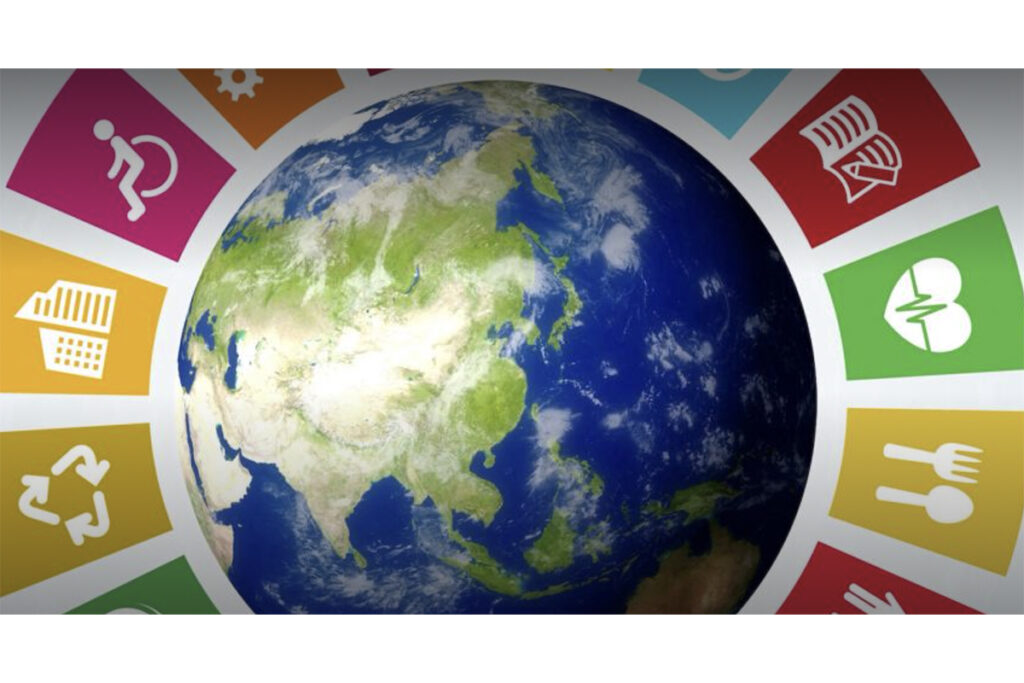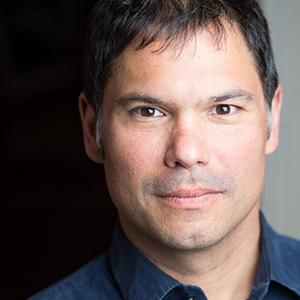Teach-In: How Arts and Communication Advance Sustainability

When it comes to sustainability, what jobs are out there that are a good fit for Emerson graduates?
That is one area of focus of Emerson’s annual Teach-In on Sustainability, happening March 4 to 6.

“Emerson already trains our students how to do the comms and art side of the work,” said Nejem Raheem, Teach-In organizer and Chair of the Department of Market Communication. “Sustainability efforts require an understanding, however basic, of a wide range of fields. One thing we are pretty good at here is training our students in a sort of professional curiosity. That’s crucial.”
Raheem emphasized the significant role industries such as marketing, public relations, journalism, and filmmaking play in advancing sustainability goals.
“Fields like marketing or public relations can contribute to the success of a range of sustainability efforts through awareness raising and behavior change campaigns,” said Raheem. “Journalists can help to explain complex topics in simple ways. Even short films or documentaries can be a crucial part of all of this. This is true across all the Sustainable Development Goals (SDGs).
Emerson’s Teach-In draws inspiration from the United Nations’ 17 Sustainable Development Goals.
SDGs are a set of global objectives established by the UN to address key social, economic, and environmental challenges, and promote sustainable development worldwide. Goals include wasting less food and supporting local farmers, donating what you don’t use, vaccinating your family, avoiding wasting water, and more.
“[SDGs] are widely understood around the world as a template for how to work toward a more liveable planet,” said Raheem. “Even if we at Emerson don’t use them extensively, many other organizations do, including the City of Boston.”
Ava Tribe ‘25 helped organize this year’s Teach-In on Sustainability. Tribe says the Teach-In will serve as a way for students unfamiliar with the subject to engage and explore sustainability issues.
“I think first and foremost, creating conversations, awareness, and communication around sustainability is so important so that students and faculty can understand the roles we play in the institutions we are a part of,” said Tribe. “Once there’s buy-in and care for the work, I think faculty and administration will take notice and help to adapt our operations to be more sustainable.”
Tribe added that the Teach-In’s focus on jobs in the sustainability industry encourages students to understand how they play a part in sustainability at Emerson, their careers, and everywhere else.
The Teach-In includes 15 events, each linked with at least one of the Sustainable Development Goals. Raheem will kick off the Teach-In during the Keynote panel Hollywood’s Hold on Sustainable Goals. He will be joined by Emerson College President Dr. Jay Bernhardt, Dean of School of Communication Brent Smith, and filmmaker Lydia Dean Pilche, who is a climate leader and educator.
Other panels include how to get a “green” job, a sustainable soiree and open mic night, and a 24-Hour Play Festival that offers writers, directors, and actors an opportunity to explore the 17 SDG goals through the lens of theatre.
The Teach-In kicks off with a keynote by guest filmmaker Lydia Dean Pilcher on “Hollywood and Sustainability.” Pilcher also joins author Dani McClain for a screening of Pilcher’s film, Homing Instinct, based on one of McClain’s short stories. Guest speaker Dr. Sunita Puri, Program Director of the Hospice and Palliative Medicine Fellowship at the UMass Chan Medical School, will discuss end-of-life care.
Check out the full schedule of the Teach-In on Race on emerson.edu
Broadly speaking, Raheem says that using the SDGs as a framework helps individuals and organizations recognize the significance of their work in the context of a global agenda.
“Everything we do and teach at Emerson fits into the SDGs in some way,” said Raheem. “So using this as a framework also shows us how our varied fields all connect back to a worldwide sustainability agenda. It also shows us what power we have to make things better.”
.
Categories